The 5 Best Fun Facts About Coffee History
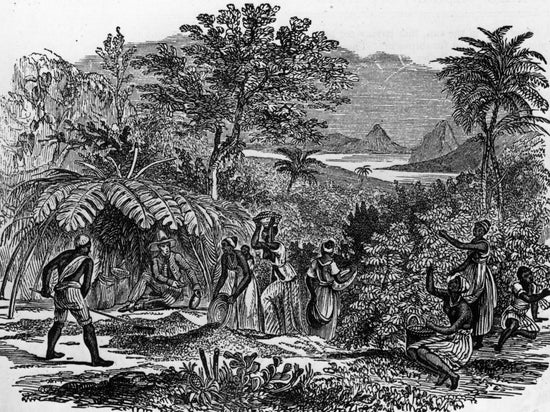
Here we go...
(1) Coffee spurred the Age of Enlightenment and the Industrial Revolution
As far-fetched as it seems, there is a lot of truth to this. Before coffee was introduced widely into European civilization in the 18th century, the primary beverage of choice, even for breakfast, was beer. Because the water supply was far too polluted to drink, most people would exist in an almost constant state of inebriation just to survive the health hazards of the day. Once coffee was introduced, these half-buzzed minds were now alert and took to thinking and organizing. A good cup of coffee and they were ready to take on all of the George the Thirds, and Louis the Sixteenths, which is why some scholars have given coffee credit for the French and American Revolutions as well.
The second reason for this sparked enthusiasm of thought and exploration was the earliest version of the internet: the coffeehouse of the 1700s. This was the place where men would meet to discuss the events of the day, to trade and to share ideas about how to shape the future. In these caffeine-fueled places, free from the level-headed sanity of their female counterparts, plots were hatched, companies were born, and eventually, monarchies were overthrown. Lloyds of London was founded in a coffee house. Bach and Beethoven penned some of their masterpieces in coffee houses. Bach even wrote an opera about coffee: The Coffee Cantata. It was truly the center of civilized society at the time. These coffee houses did, however, exclude women - leading to the second fun fact:
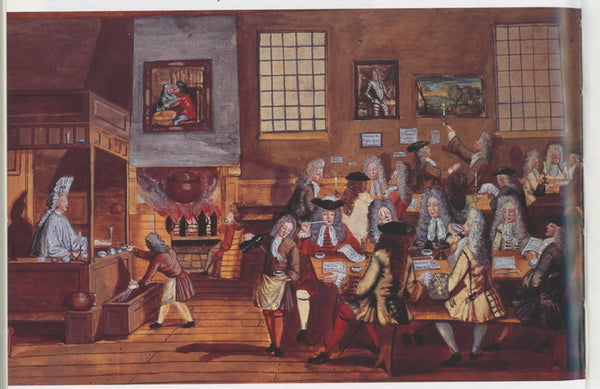
An enlightenment coffeehouse . c.1700s
(2) Women launched a propaganda campaign against coffee in 1674, claiming it made men impotent
Called the "Women's Petition against Coffee" it is the cumulative rail of the women at the time against the time and energy men spent at the coffeehouse. No need to paraphrase this one, as the original text is too funny not to quote:
"... the Excessive use of that Newfangled, Abominable, Heathenish Liquor called COFFEE, which Riffling Nature of her Choicest Treasures, and Drying up the Radical Moisture, has so Eunucht our Husbands that they are become as unfruitful as those Desarts whence that unhappy Berry is said to be brought."
And it continues...
"We have read, how a Prince of Spain was forced to make a Law, that Men should not Repeat the Grand Kindness to their Wives, above NINE times a night; but Alas! Alas! Those forwards Days are gone… For the continual flipping of this pitiful drink is enough to bewitch Men of two and twenty, and tie up the Codpiece-points without a Charm. It renders them that use it as Lean as Famine, as Rivvel'd as Envy, or an old meager Hagg over-ridden by an Incubus. They come from it with nothing moist but their snotty Noses, nothing stiffe but their Joints, nor standing but their Ears."
In the immortal words of William Congreve, "Heav'n has no Rage, like Love to Hatred turn'd, Nor Hell a Fury, like a Woman scorn'd"
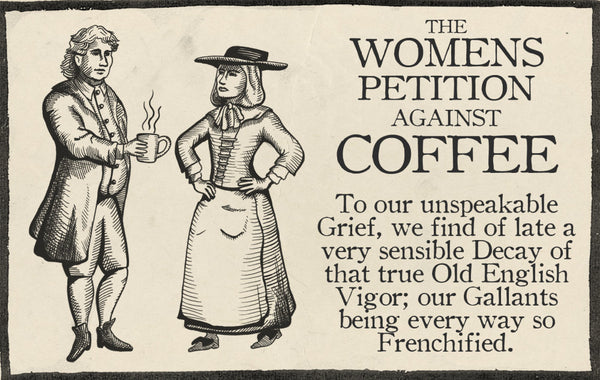
She looks mad. Source: Adam Cole, NPR
(3) The Boston Tea Party lead to the rise of coffee in America
As smitten as the rest of Europe was with coffee, Britain and America were still firmly in the tea camp in the early-to-mid 1700s. This is likely due, in part, to Britain's colonization of India, where Britain brought tea plants in order to provide a less expensive source of leaves from the ones originally sourced in China. Yes, we even outsourced in the 18th century. Nevertheless, in America, the Boston Tea Party changed all of that. When George III decided to levy a tax against the Americas, the Tea Act of 1773, the colonists revolted. Most of the ships carrying tea were refused at port, while one ship in Boston was raided by a young Sam Adams and his tribe of masqueraded Mohawks. After that date, drinking tea in America was seen as unpatriotic. As John Adams once wrote to Abigail:
"I believe I forgot to tell you one Anecdote: When I first came to this House it was late in the Afternoon, and I had ridden 35 miles at least. 'Madam' said I to Mrs. Huston, 'is it lawfull for a weary Traveller to refresh himself with a Dish of Tea provided it has been honestly smuggled, or paid no Duties?'
'No sir, said she, we have renounced all Tea in this Place. I cant make Tea, but He make you Coffee.' Accordingly I have drank Coffee every Afternoon since, and have borne it very well. Tea must be universally renounced. I must be weaned, and the sooner, the better."
While this event in American history was certainly a turning point for coffee in America, widespread acceptance was bred by the many wars and conflicts that would ensue, including the Civil War, where Union troops were given 36 pounds of coffee per year. In WWI, part of the mobilization effort for the U.S. War Department was establishing local roasting and grinding plants in France to ensure fresh coffee for the troops. However, all of this paled in comparison to the impact of the invention by another famous George Washington towards the end of the war - instant coffee.
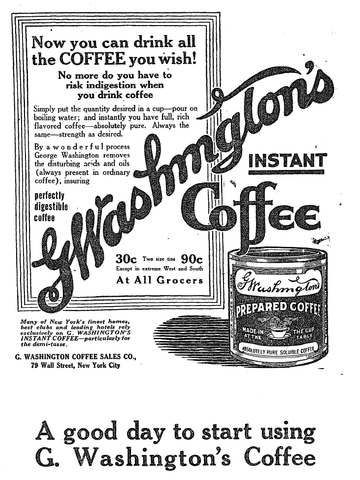
A 1914 advertisement for G. Washington Coffee. Source: New York Times
(4) There have been five attempts to ban coffee in the world (that we know of)
Oh, silly government. From our friends at Mental Floss, here are the five unsuccessful attempts at banning coffee:
- Mecca, c.1511. Coffee was banned by the governor as a result of it stimulating radical thinking. It was seen as an equal intoxicant to that of wine. Not long after, however, the sultan of Cairo, who outranked the governor, overruled the idea and the ban was lifted. Fun fact: some Sufi religious sects were known to drink bowls of coffee at funeral prayers to keep them awake.
- Italy, c.16th century. The clergy, assuming coffee to be the "Devil's Cup", pressed for it to be banned. However, Pope Clement VIII was so taken with the beverage that he proclaimed: “This Satan’s drink is so delicious that it would be a pity to let the infidels have exclusive use of it.”. According to legend, he later baptized the drink, making it an acceptable beverage for Catholics worldwide, and justified it as a more acceptable beverage than alcohol.
- Constantinople, c.1623s. Sultan Murad the IV's ascended the throne and outlawed both coffee and booze. He was known to dress in disguise to catch violators and simply behead them on the spot. The punishments got a wee more lenient with his successor, however. The first offense: beating. Second offense: Sewed in a leather bag and thrown into the Bosphorus.
- Sweden, c.1746. Sweden not only tried to ban coffee, but they also outlawed coffee paraphernalia - such as cups and saucers. As much as we'd like to see that episode of NCIS, it's a bit ridiculous. King Gustav III ordered inmates of the prison to drink coffee as a form of capital punishment, monitored by doctors who would log how long it took to kill them. Inmates 1, Doctors 0.
- Prussia, c.1777. Topping the list of the most believable attempt to ban coffee, Fredrick the Great of Prussia (i.e., old Germany), issued a manifesto outlawing the drink in favor of beer. His statement read, and we're paraphrasing here: "I was brought up on beer, so how could it possibly be bad." He did live until his 74th birthday when the average life expectancy was 36, so Freddy might have had a point.
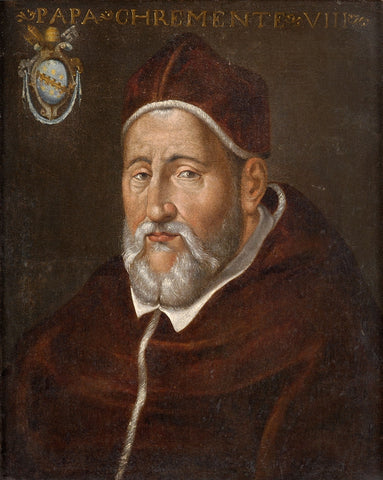
Pope Clement: "It's so good when it hits your lips."
(5) The most expensive coffee ever purchased at auction was $4,535 per pound
In 2019, A special micro-lot of Panama green coffee (unroasted) was bought for $10,000 per kilo (or $4535 per pound.) Keep in mind the retail markup of coffee from green to cup is about 300%. So, a 20 gram brewed cup would cost well over $300. The company has not publicly shared the coffee variety or processing method but has called the micro-lot part of its “prototype coffee” series.